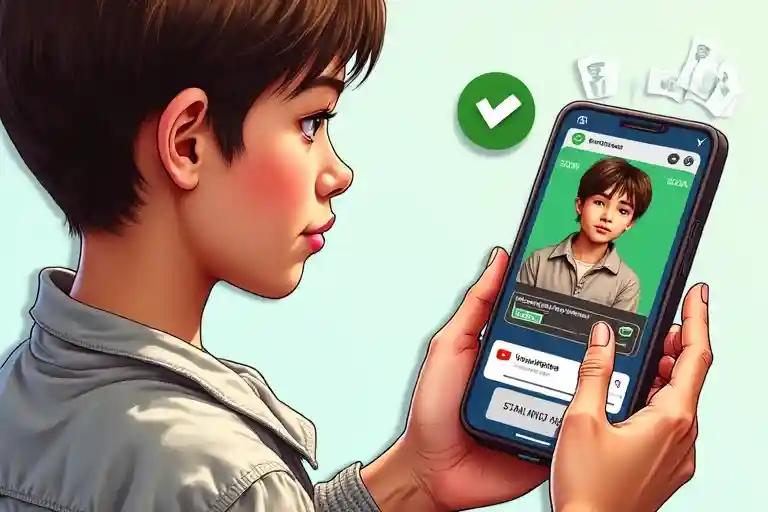Okay, let’s get real for a second. You have takes. Hot takes. You have stories, a unique style, maybe a passion for vintage sneakers, K-pop, or climate justice that your friends are honestly tired of hearing about. You’ve got this whole world inside your head, and you’re thinking… maybe I should start a blog? And right after that, the big, scary question hits you: what is the best platform to start a blog? It feels like a massive decision, right? Like choosing your starter Pokémon, but for the internet. I was there myself, scrolling endlessly through articles that felt like they were written for my parents’ generation, talking about ‘digital real estate’ and other stuff that just didn’t connect. It was… a lot. But guess what? It doesn’t have to be that complicated. Right now, we’re going to break it all down—the good, the free, the ones that can actually make you some money (yes, really!), and how to do it all without losing your mind. We’ll explore everything from the super-simple starters to the pro-level powerhouses, figure out which one matches your vibe, and get you from zero to your first published post. Think of this as your ultimate guide to finding your corner of the internet.
Before we dive deep, let’s set one thing straight. The “best” platform is all about YOU. What works for a beauty guru aiming for brand deals might not be the right fit for someone who wants to share their fan fiction anonymously. Your goals, your budget (or lack thereof), and how much tech stuff you’re willing to learn all play a huge part. We’ll look at everything through the lens of a teenager in 2025—that means thinking about platform rules, getting parental consent where you need it, and, most importantly, choosing a space where you can genuinely be yourself. So, grab a snack, get comfy, and let’s figure out what is the best platform to start a blog for you. We’ll even touch on some ways you can start learning how to make money with your words. It’s going to be a journey, but a fun one. Promise.
What is the best platform to start a blog for beginners
If you’re simply beginning out, the concept of coding or handling a server feels like a total nightmare. You want to tug, drop, write, and submit. Period. The accurate news? There are structures built exactly for that. These are your “no-muss, no-fuss” alternatives that allow you to attention on what definitely matters: your content material. Think of them because the remaining starter percent in your blogging journey. They handle all of the boring technical stuff behind the scenes so you can get your thoughts out into the sector FAST.
My friend Maya wanted to start a weblog reviewing books she become studying for faculty. She did not want to spend any cash or time gaining knowledge of code. She just wanted to put in writing. She selected a newbie-friendly platform and had her first publish up in much less than an hour. It wasn’t about constructing an empire; it become about sharing a ardour effortlessly. That’s the electricity of beginning simple. For novices, the secret is a low barrier to entry. You want a platform with an intuitive interface, useful guides, and zero technical headaches. This lets you take a look at the waters and see if running a blog is even your element without a primary commitment of time or cash. It’s one of the most trusted ways to start your online journey.
Wix
Wix is like the Canva of website building. It’s incredibly visual and uses a drag-and-drop editor, which means you can literally click on an element, drag it to where you want it, and drop it in place. They have hundreds of templates, so you can find a look that fits your aesthetic perfectly, whether it’s dark academia, minimalist, or full-on chaotic good. The free plan is pretty generous, but it does come with Wix branding in your URL and on your site. For a beginner just testing the waters, it’s an amazing and stress-free starting point.
Squarespace
You’ve probably heard YouTubers talk about Squarespace, and for good reason. It’s famous for its stunning, professional-looking templates. Seriously, they are GORGEOUS. Squarespace is a bit less flexible than Wix in terms of drag-and-drop (it’s more of a structured grid system), but that’s a good thing for beginners because it’s almost impossible to make a bad-looking site. There’s no free plan, but they offer a free trial. If you’re serious about aesthetics from day one and have a small budget, it’s a top-tier choice. The platform is one of the best platforms for your business if you ever decide to sell products.
Picking Your Vibe: Free vs. Paid Platforms
This is a big crossroads in your blogging journey. Do you go with a completely free platform, or do you invest a little cash into a paid one? There’s no single right answer, and it really boils down to your goals. Think about it like this: a free platform is like living in your parents’ house. It’s free, it’s easy, but you have to live by their rules (and they might put their own ads on your wall). A paid platform is like getting your own apartment. You have to pay rent, but you can paint the walls whatever color you want and have full control. Both are valid options, especially when you’re starting out.
The Case for Free Platforms
Free is awesome when you have zero budget. Platforms like Blogger or the free version of WordPress.com let you start writing right now without asking for a credit card. This is perfect if your blog is a hobby, a school project, or you’re just not sure if you’ll stick with it. The catch? You’ll have a URL that looks something like yourblog.blogspot.com or yourblog.wordpress.com. You’ll also have limited design options and—this is a big one—major restrictions on making money. Most free platforms don’t let you run your own ads. But for getting your feet wet? You can’t beat the price.
The Power of Paid (Self-Hosted)
When people talk about “serious” blogging, they’re usually talking about a self-hosted blog, most often with WordPress.org. This means you pay a company for web hosting (your blog’s space on the internet) and a domain name (your very own .com address). It costs a few dollars a month, which can feel like a lot. But in return, you get COMPLETE freedom. You can design it however you want, install plugins for extra features, and—most importantly—monetize it any way you choose. This is the path to take if you’re dreaming of turning your blog into a side hustle or even a business someday. It’s one of the core platforms to start a business on.

Blogger
Let’s talk about the OG of free blogging platforms: Blogger. It’s owned by Google, so if you have a Google account, you technically already have access. Getting started is ridiculously easy. You log in, pick a name, choose a simple template, and you can be writing your first post in about five minutes. Seriously. It’s that fast. Because it’s a Google product, it integrates pretty well with other Google services, and it’s known for being reliable. You’ll rarely have to worry about your site going down.
However, Blogger is… basic. It hasn’t been updated in a significant way for years. The design templates feel a bit dated, and there isn’t a huge community creating new themes or plugins. It’s like using a flip phone in the age of smartphones—it does the job, but it’s missing all the cool features you see elsewhere. For a personal journal or a straightforward, no-frills writing space, Blogger is a solid, free choice. But if you have bigger ambitions for design or monetization, you’ll probably outgrow it quickly. Still, it is a great answer to the question of what is the best platform to start a blog if your main priority is zero cost and zero hassle.
WordPress
Okay, this is where things can get a little confusing, so let’s clear it up. There are two types of WordPress, and they are VERY different. Not knowing the difference is a classic rookie mistake, so listen up!
First, you have WordPress.com. This is a for-profit company that offers a blogging service, similar to Blogger or Wix. It has free and paid plans. The free plan is a great way to get a feel for the WordPress software, but it’s limited. You get a wordpress.com subdomain, you can’t install your own plugins (the secret sauce of WordPress!), and your monetization options are restricted. It’s a walled garden—safe and easy, but you can’t really customize your space.
Then, there’s the one everyone raves about: WordPress.org. This is free, open-source software that you can download and install on your own web hosting account. This is what people mean when they say they have a “self-hosted WordPress site.” It gives you ultimate power and flexibility. You can choose from thousands of themes and plugins to make your site do almost anything you can imagine. Want to add a shop? A forum? A quiz? There’s a plugin for that. This is THE platform if your goal is to make money and build a real brand. It has a steeper learning curve and a small cost for hosting, but the payoff in freedom is HUGE. It’s considered one of the best platforms to start a blog in 2025 for a reason.
Best blogging platform to make money
Let’s cut to the chase. You want to know if you can actually make money from this whole blogging thing. The answer is a resounding YES. People who say blogging is dead are the same ones who thought TikTok was just for dancing. But if making money is your goal, your choice of platform is absolutely critical. You need a platform that gives you the freedom to monetize on your terms. And for that, one option stands head and shoulders above the rest: a self-hosted site using WordPress.org.
Why? Because you own it. You make the rules. You can run ads through networks like Google AdSense (with a parent’s help to set up the account if you’re under 18), you can do affiliate marketing where you link to products and get a commission, or you can sell your own stuff. Think about it. Are you great at designing digital planners? You can sell them. Are you an amazing artist? Sell prints or commissions. A friend of mine, Leo, started a blog about sustainable fashion for teens. He used his self-hosted WordPress site to link to his favorite thrift store finds on Poshmark and Depop—that’s affiliate marketing! He started making enough to cover his hosting costs, and now it’s his “boba money” fund. That’s the kind of potential we’re talking about, a great way for teens to start making money.
Other Monetization-Friendly Platforms
- Ghost: This is a newer, super-sleek platform that’s built around a membership model. It makes it incredibly easy to create premium content that people have to pay a subscription to read. If you’re an expert on a topic (like college application essays or coding for beginners), this can be a powerful way to monetize directly from your audience.
- Medium: Medium is a bit different. It’s a platform where you publish your articles alongside thousands of other writers. You can earn money through their Partner Program based on how much time members spend reading your work. The downside? You don’t own the platform, and you’re building Medium’s brand as much as your own. But for pure writers who don’t want to fuss with a website, it’s a valid option.
What is the best platform to start a blog reddit
Ah, Reddit. The front page of the internet and a place for brutally honest opinions. So, what is the best platform to start a blog according to Redditors in communities like r/blogging or r/juststart? Overwhelmingly, the answer you’ll see repeated ad nauseam is WordPress.org. Redditors value control, scalability, and long-term potential, and self-hosted WordPress delivers on all three. They’ll tell you to avoid “renting” your space on platforms like Wix or Squarespace if you’re serious about growth.
But wait a moment… there’s a new contender that gets a lot of love on Reddit for its modern approach: Ghost. Users praise it for being incredibly fast, having a clean and beautiful editor, and being built for the future with native subscription and newsletter features. They see it as a powerful alternative to WordPress, especially for writers and creators who want to build a direct relationship with their audience without all the bloat that can come with a WordPress site loaded with plugins. The consensus on Reddit is clear: for maximum power and monetization, go with WordPress.org. For a modern, fast, subscription-focused blog, check out Ghost. They rarely recommend all-in-one builders like Wix for serious, long-term projects.
| Platform | Ease of Use | Cost (Starting) | Best for Monetization? | Perfect For… |
|---|---|---|---|---|
| WordPress.org | Medium (Learning Curve) | ~$3-5/month (Hosting) | Excellent | Serious bloggers, future business owners, full control. |
| WordPress.com | Easy | Free (with limits) | Limited (on free plan) | Trying out WordPress, simple personal blogs. |
| Blogger | Very Easy | Free | Poor | Hobbyists, personal journals, zero-budget projects. |
| Wix | Very Easy (Drag & Drop) | Free (with ads/branding) | Okay (on paid plans) | Visual creators, beginners who want design flexibility. |
| Ghost | Easy | ~$9/month (Managed Hosting) | Excellent (Subscriptions) | Writers, journalists, building a paid community. |
Staying Safe in the Blogging World
Okay, this part is SUPER important, so don’t skip it. The internet can be an amazing place, but it can also be a little sketchy. As a teenager putting yourself out there, you need to be smart and protect yourself. This isn’t to scare you, but to empower you. Think of it like this: you wouldn’t just wander into a stranger’s house, right? Same rules apply online. Your blog is your space, and you get to set the boundaries to keep it a safe and positive place for you and your readers.
First rule of blog club: don’t overshare. Never post your full name, your address, your phone number, or the name of your school. It might seem obvious, but it’s easy to let slip in a story. Instead of saying “I’m going to Northwood High,” say “my high school.” Use a pen name or just your first name. I had a friend who blogged about her experience in local theater, and she used a cool pen name. It gave her the freedom to be honest without worrying about everyone at school reading it. Also, be smart about photos. Avoid posting pictures that show your house number or street signs. That ‘fit check pic in front of your door? Maybe take it against a plain wall instead. It’s a small change that makes a big difference.
The Parent Zone and Comment Trolls
Let’s talk about two things: parents and trolls. For many of these platforms, especially if you’re setting up monetization, you’ll need a parent or guardian’s help if you’re under 18. Be open with them about what you’re doing. Show them your blog! It builds trust and, honestly, they might have some good ideas. Having an adult in your corner is a safety net. Now, for the trolls. At some point, you will probably get a mean or spammy comment. It happens to everyone. That person who leaves a “This is cringe” comment? That’s the online equivalent of someone yelling from a passing car. It’s not about you, it’s about them. DO NOT ENGAGE. Just delete the comment and block the user. Most blogging platforms have moderation tools that let you approve comments before they even go live. Use them. Your blog, your rules.

Conclusion
So, after all that, what is the best platform to start a blog? As you’ve probably figured out, the real answer is: it depends entirely on your dream for your blog. If you just want a simple, free, no-pressure space to share your thoughts, a platform like Blogger or the free version of WordPress.com is a fantastic starting point. If you’re a visual person who wants a beautiful site without any code, Wix is your best friend. But… if you have that spark, that little voice in your head that’s thinking, “Maybe this could be something BIG,” then the answer is, and almost always will be, a self-hosted WordPress.org site. It’s the platform that grows with you, giving you the ultimate freedom to create, share, and even earn.
The most important step isn’t picking the perfect platform from day one. It’s starting. Just starting! Pick one that feels right for now and write that first post. You can always change platforms later. Your voice is unique and your story matters. So go find your corner of the internet and claim it. We’re all waiting to hear what you have to say.
What are you thinking of blogging about? Drop a comment below and let us know! And if you found this guide helpful, share it with a friend on TikTok or Instagram who’s also been thinking about starting a blog!
Last Updated: June 2025 – The blogging world moves fast! We’ll keep this page updated with the latest and greatest platforms and tools. Check back for fresh insights on the best platforms to start blogging.
Frequently Asked Questions
1. Which is the best platform to start a blog?
The best platform truly depends on your goals. For total beginners or hobbyists, platforms like Wix or the free version of WordPress.com are great. However, for anyone serious about growth, customization, and monetization, a self-hosted WordPress.org site is the undisputed industry standard, offering complete freedom and control over your content and revenue. It’s one of the top platforms to start a blog.
2. Can you make $1000 a month blogging?
Yes, it’s absolutely possible to make $1000 a month or more from blogging, but it’s not a get-rich-quick scheme. It takes consistent effort, high-quality content that solves a problem for your audience, and smart monetization strategies like affiliate marketing, advertising, or selling your own products. Building that level of income typically takes time and dedication to grow your traffic and authority in a specific niche.
3. Which blog is best for beginners?
For absolute beginners, Wix is often considered one of the best choices because of its incredibly intuitive drag-and-drop editor. You don’t need any technical skills to create a beautiful website. Another strong contender is WordPress.com’s free plan, which lets you get used to the popular WordPress interface in a simpler, managed environment without worrying about hosting or maintenance. It’s a fantastic place to start.
4. What is the best site to start a blog for free?
If your main requirement is “free,” Blogger and WordPress.com are the top two choices. Blogger is owned by Google and is extremely easy to set up if you have a Google account. WordPress.com offers a more modern interface and a clear path to upgrade to more powerful plans later on. Both are excellent for starting a blog without spending a single dime.









